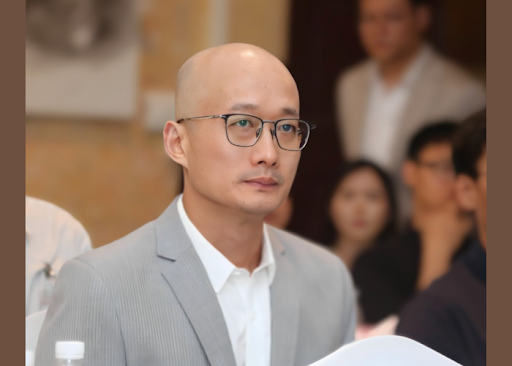Jiangtao Liu: At the Forefront of Combating Climate Change Through Agricultural Innovation

Global agriculture faces an alarming crisis as soil degradation and water contamination threaten the foundations of food production. Traditional farming practices, prioritising yield over sustainability, have unleashed a torrent of pollutants, including chemical fertilisers, pesticides, and antibiotics, wreaking havoc on delicate ecosystems.
In Australia alone, over 160,000 sites are affected by contamination, according to a 2014 report by the Cooperative Research Centre for Contamination Assessment and Remediation of the Environment (CRC CARE). This staggering figure underscores the urgent need for innovative solutions addressing the detrimental impact of agricultural pollution on soil and water quality. The consequences are far-reaching, with heavy metal contamination posing risks to human health and excessive chemical fertiliser use leading to soil acidification, salinisation, and organic matter reduction, ultimately diminishing crop yields and nutritional value.
Challenging Conventional Farming Practices
Recognising the gravity of this crisis, Jiangtao Liu, an eco-conscious entrepreneur from China, has dedicated himself to revolutionising agricultural practices. Through his companies, including Beijing Carbon Source Power Agricultural Development Group, Saint Humic Acid, and Green Agrochem, Liu has championed sustainable solutions that prioritise environmental stewardship while maintaining productivity.
"Our expertise spans from organic carbon fertilisers to animal feed additives and comprehensive environmental protection products, each reflecting our staunch commitment to combating climate change, reversing soil deterioration, and curtailing pollution and the rampant use of agricultural chemicals," Liu states, underscoring the breadth of his innovative advocacy.
With a team of over 100 employees, including seasoned chemical experts and postgraduates, Liu's companies have achieved remarkable feats, such as a monthly output of 3,000 MT of humic products and a daily production capability of 150 MT of lignin. Humic products and lignin are significant in sustainable agriculture as they enhance soil health, improve plant growth, and contribute to the overall sustainability of agricultural ecosystems.
Embracing Organic Carbon Fertilisers
Developing organic carbon fertilisers, an alternative to traditional chemical-based products, is central to Liu's endeavors. Enriched with humic acid, these fertilisers enhance soil fertility, improve structure, increase aeration, and support beneficial microbial communities.
"Humic acid serves as a cornerstone in enhancing soil structure, promoting water retention, and facilitating nutrient absorption in plants," Liu explains, highlighting the organic compound's pivotal role in rejuvenating nutrient-deficient soils.
Leveraging his extensive experience, Liu has orchestrated impactful initiatives across the agriculture and environmental conservation landscapes. His companies enforce strict quality control and after-sales support to meet varied customer needs, ensuring product traceability and long-term quality assurance.
From Coal to Agricultural Gold
A notable achievement, Liu has pioneered a method to convert low-rank coal, often considered a waste product, into valuable humic acid for use in fertilisers. This innovation offers a sustainable solution for managing coal waste and contributes significantly to soil rejuvenation, particularly in Australia, where arid conditions and nutrient-depleted soils pose challenges for agriculture.
By targeting the conversion of brown coal from regions like Victoria and Adelaide, Liu tackles two critical challenges: managing Australia's abundant coal waste and improving its agricultural soils. This initiative aligns perfectly with Australia's goals for environmental responsibility and boosts agricultural productivity.
Sustainable Animal Feed Solutions
Extending his commitment to sustainability, Liu has introduced lignosulfonate-based animal feed additives as a viable alternative to antibiotics. Ranked as the fourth-largest global player in the lignosulfonate market, Liu's company, Green Agrochem, has set new benchmarks in the sector.
"Our lignosulfonate-based feed additives match the growth facilitation of antibiotics and offer additional advantages at a reduced cost," Liu states, emphasising his products' economic and efficacy advantages.
These innovative formulations address the nuanced dietary requirements of different livestock species, harnessing the power of lignosulfonates sourced from the naturally abundant polymer lignin. Independent studies have confirmed their efficacy in reducing Salmonella populations in livestock, bolstering health and biosecurity while optimising nutrient utilisation, gut functionality, and immune system support.
Tackling Environmental Contamination
Liu's expertise goes beyond agriculture, as he has developed environmental restoration strategies. Through comprehensive site investigations and lab testing, his team crafts tailored treatment plans utilising the restorative properties of humic substances and lignin to remediate soil and water contaminated by heavy metals, chemical fertilisers, and other pollutants.
"By activating humate and lignin under controlled conditions, the detoxification process is accelerated, ensuring that each step synergistically aligns with natural processes," Liu explains, highlighting the adaptability and efficacy of these substances in ecological recovery.
Liu's strategies address soil pollution head-on, directly impacting water ecosystems and food safety. In combating heavy metal contamination, his team rigorously researches the interaction of humic acid with these pollutants in both soil and water, employing a synergistic approach with soil modifiers to enhance the efficacy of humic acid in neutralising heavy metals.
Aligning with Global Sustainability Goals
Liu finely aligns with global sustainability initiatives, such as the "4 per 1000 Initiative" from the COP21 Paris Climate Conference, which aims for an annual 4% increase in soil carbon content to reduce global carbon emissions.
"Our organic carbon fertilisers play a crucial role in mitigating soil carbon depletion, demonstrating a sophisticated strategy in land stewardship that mirrors Australia's commitment to sustainable practices under the Paris Agreement," Liu affirms, underscoring the broader impact of his work on climate change mitigation.
Liu champions a global movement against climate change by promoting innovative agricultural methods that balance productivity with environmental care. His efforts emphasise the effectiveness of science-based, sustainable practices in overcoming environmental challenges and establishing future agricultural standards.
© Copyright 2025 IBTimes AU. All rights reserved.





















